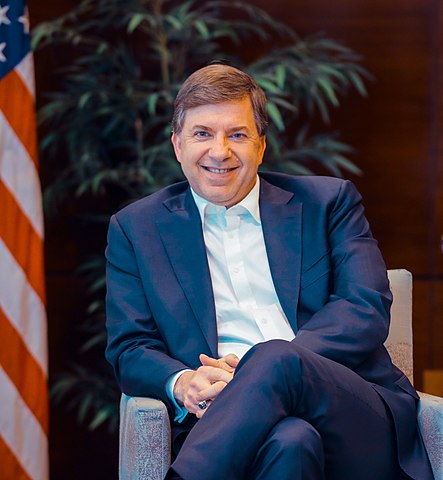The budding friendship between the presidents of the U.S. and Brazil faces a new test as negotiators for both countries come head-to-head over the politically sensitive issue of ethanol tariffs.
Farmers and biofuel producers in both countries are pressuring their leaders to protect them as an Aug. 31 deadline approaches that could mark the end of the limited tariff-free access to Brazil for U.S. ethanol, but it could also open the giant South American market to allow for billions of dollars more in U.S. exports or extend the status quo of the current tariff rate quota.
U.S. corn farmers and ethanol producers are lobbying the Trump administration to not settle for anything less than an agreement by Brazil to scrap its TRQ and lift its 20% tariff on U.S. ethanol.
“This has been a top priority for us with the (Trump) administration since the TRQ went into place back in 2017,” Craig Willis, senior vice president for global markets for Growth Energy, said in an interview. “We’ve had a lot of dialogue with the (Office of the U.S. Trade Representative) and USDA. We’ve been pretty consistent in our ask. We want to have parity between the two countries.”
Brazil, responding to pressure from sugarcane farmers who felt squeezed by rising U.S. corn-based ethanol imports, attempted to curtail the influx three years ago by establishing a TRQ. There would be no tariffs on the first 159 million gallons of U.S. ethanol that entered Brazil; after that, the U.S. biofuel would be hit with a 20% duty.
The TRQ was a temporary measure, set to expire at the end of August in 2019, but Brazil found itself in a difficult situation at the time. It was under new leadership after Jair Bolsonaro was elected in 2018. The right-wing leader, dubbed by some as the “Trump of the Tropics,” was swiftly on good terms with President Donald Trump, but Brazilian farmers were still adamantly opposed to lifting all barriers to the U.S. ethanol.

Craig Willis, Growth Energy
So the TRQ was extended by a year, and — in an attempt to mollify the U.S. — Brazil raised the tariff-free amount to 198 million gallons.
It didn’t work. Geoff Cooper, president and CEO of the Renewable Fuels Association, called the increase “a token” improvement, while Growth Energy CEO Emily Skor stressed her “disappointment that Brazil did not remove their tariff completely to allow a fully open market.”
Now a year later, with a U.S. presidential election fast approaching, U.S. and Brazilian negotiators are deep in dialogue, according to government sources in both countries, who asked not to be named in this article.
The talks are taking place as the two countries are broadly deepening trade and political ties. Bolsonaro met Trump for the second time in March. While the first meeting at the White House was more formal, the second took place after Trump invited Bolsonaro to the Mar-a-Lago resort in Florida.
The U.S.-Brazil “friendship is probably stronger now than it has ever been,” Trump said during Bolsonaro’s visit.
Shortly afterward, U.S. Trade Representative Robert Lighthizer got on the phone with Brazilian Foreign Affairs Minister Ernesto Araujo. USTR officials said the dialogue was designed to “deepen discussions” on an “economic partnership,” sparking speculation about a potential free trade agreement.
But that did not change the fact that both countries would be pushing to get what they can for their farmers, one Brazilian government official told Agri-Pulse. Brazilian sugarcane farmers are lobbying for Bolsonaro to, at a minimum, keep the TRQ in place.
And that would continue to hurt U.S. producers, says Willis. While the U.S. has been exporting some ethanol above the quota, the TRQ has effectively pushed U.S. exports down. The U.S. exported about 500 million gallons of ethanol in 2018, but that dropped sharply by more than 30% to just 340 million gallons in 2019, according to data from the U.S. Energy Information Administration.
And the total is expected to fall even further this year, partially due to the COVID-19 pandemic that has decreased fuel demand around the globe. It’s a rough turnaround from a strong start to the year when Brazil imported 58.2 million gallons of U.S. ethanol in January, about double what it purchased in December, according to data from the Renewable Fuels Association.
“We need this,” Willis said about a return to zero-tariff ethanol trade with Brazil. “What’s at stake here is our largest export market.”
Overall, the U.S. exported about 1.47 billion gallons of ethanol worldwide last year, but Willis said he expects that to fall to about 1.1 billion gallons this year.

Ambassador Todd Chapman
One potential wrench in the negotiating process are Brazilian press reports claiming that Todd Chapman, the U.S. ambassador to Brazil, asked leaders there to agree to drop the country’s 20% tariff on U.S. ethanol as a political favor to Trump, who is counting on rural support in the November election.
Interested in more coverage and insights? Receive a free month of Agri-Pulse.
The news reports — which Chapman denies are true — spurred Chairman of the House Foreign Affairs Committee Eliot Engel, D-N.Y. and Rep. Albio Sires, D-N.Y. to write a letter to Chapman Friday out of concern that he may have violated a law that bans some political activity by federal officials.
Chapman, in a statement released Monday, says: “Any interpretation of my defense of long-standing commercial interests during an election year as an attempt to benefit a particular presidential candidate is simply not correct. What I have done in those meetings was to continue to advocate for open trade and cooperation on commercial issues as well as pursue other areas of mutual interest for both the United States and Brazil.”
The Chapman issue has not impacted official talks on Brazil’s ethanol tariffs, a Brazilian government official said.
“What we’re going to continue to do is press on USTR and USDA,” Willis told Agri-Pulse. “This is our largest export destination for U.S. ethanol. Our ask is that we go back to where we were (when) there was no tariff on U.S. ethanol.”
For more news, go to www.Agri-Pulse.com.


